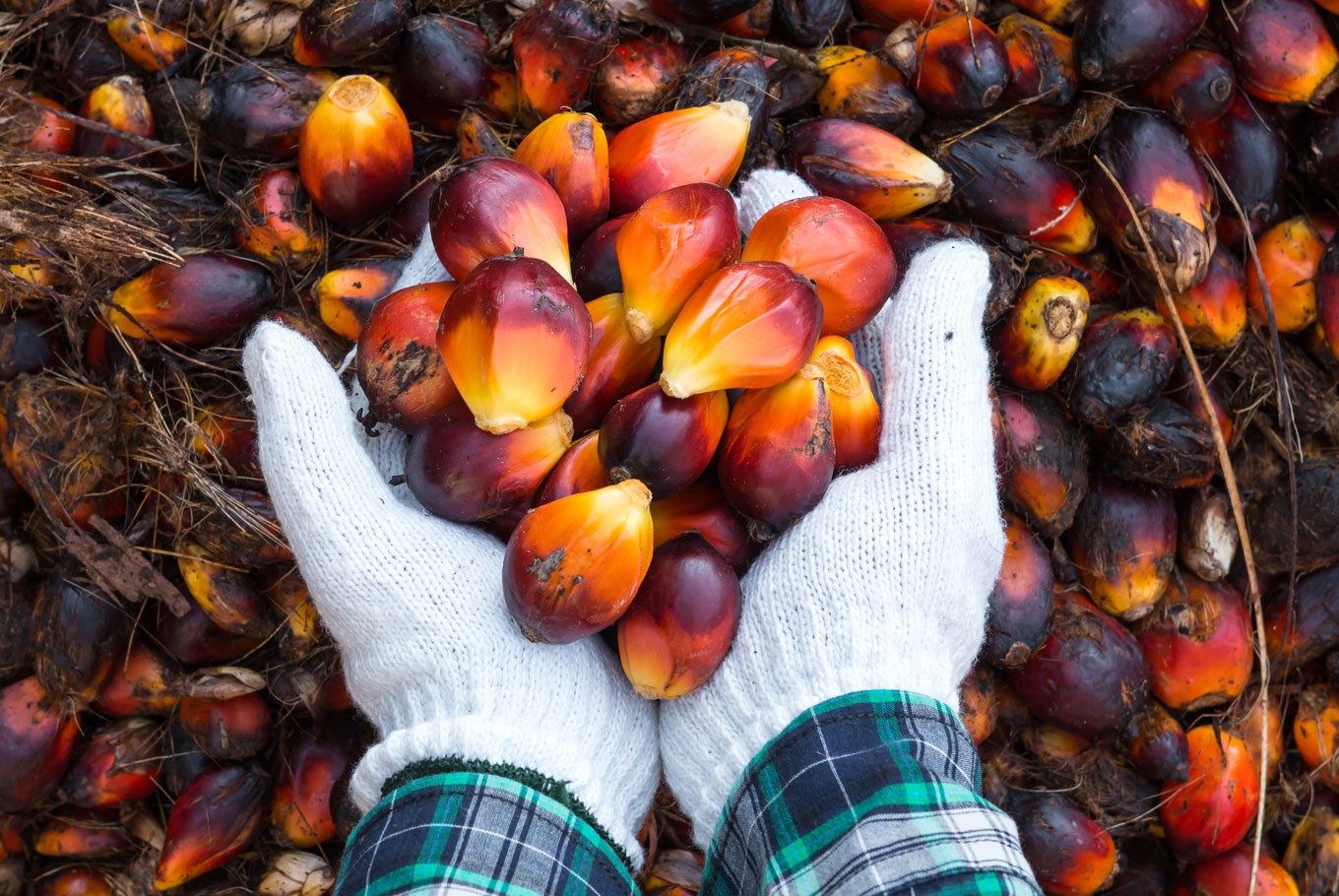Popular Reads
Top Results
Can't find what you're looking for?
View all search resultsPopular Reads
Top Results
Can't find what you're looking for?
View all search resultsFarmers dispute palm oil prosperity claims
Seventeen million people across Indonesia depended on the palm oil industry, while 3 million people were independent farmers that sold their TBS products to middlemen at very low prices, at around Rp 500 (3 US cents) per kilogram, or even less than that.
Change text size
Gift Premium Articles
to Anyone
F
armers have challenged claims that the palm oil industry has brought prosperity to smallholders and reduced poverty, as millions still struggle to get land ownership documents and earn enough money to meet their basic needs.
The chairman of the Bogor-based Oil Palm Smallholders Union, Mansuetus Darto, said the better welfare of farmers and sustainable development goals (SDG) could be achieved when farmers secure their land rights and the government sets a minimum price for fresh fruit bunches (TBS), as well as establishes fairer partnerships with companies.
Seventeen million people across Indonesia depended on the palm oil industry, Darto said, while 3 million people were independent farmers that sold their TBS products to middlemen at very low prices, at around Rp 500 (3 US cents) per kilogram, or even less than that.
“Their lives depend on the TBS price. If [the price] goes down then they would be in poverty, and they will not be able to buy food or meet their basic needs,” he said on Friday during a session of the 14th Indonesian Palm Oil Conference.
The annual palm oil conference, which was held in Nusa Dua this year, gathered government and palm oil companies to discuss how the industry can contribute to achieving the SDGs and boost prosperity.
The government and the Indonesian Palm Oil Producers Association claimed that the industry, which is a key feature of the country’s economy, has contributed to the SDGs by reducing the number of people in poverty.
According to 2016 data from the Trade Ministry, from 2001 to 2010 the palm oil sector in Indonesia lifted 10 million people out of poverty, of which at least 1.3 million lived in rural areas. It provided an income for 5.3 million workers and supported the livelihood of 21 million people.
“For the big companies and industries, of course the government has contributed, but for the independent farmers, [the government hasn’t done enough]. The farmers are supposed to be the beneficiaries of the SDGs. Industry players and the government must improve the livelihoods of independent farmers,” Darto said.
This is not the first time that farmers have complained about the lack of effort to improve their welfare.
Earlier, farmers in Riau complained that they could not access grants from the People’s Oil Palm Replanting (PSR) program offered by the Indonesian Oil Palm Estate Fund to renew their aging plants.
The Agriculture Ministry has set a target of replanting 185,000 hectares of smallholders’ oil palm plantations this year. Yet, the realization as of October is less than 5 percent.
The Association of Indonesian Oil Palm Farmers secretary for Kuantan Singingi regency, Imrialis, said what the government had done was not enough, as the basic problem for smallholders was that they did not own land.
To access the grants, a document on land ownership is required.
Imrialis said there were many farmers who planted in areas that were classed as protected forests, industrial forests, customary forests, social forests and peatland.
“We do want to register with the PSR program, but many of us are not highly educated, so we find it difficult when facing the numerous requirements, especially regarding land verification,” he said.
In September, President Joko “Jokowi” Widodo imposed a moratorium on oil palm plantations by signing Presidential Instruction No. 8/2018 that forbids the expansion of oil palm plantations and ordered the Agriculture Ministry to make sure that 20 percent of existing plantations were allocated to smallholders.
However, Darto said the figure of 20 percent was very small and not clear enough regarding the farmers’ welfare.
“I asked the Agriculture Ministry to give us the exact number of hectares a farmer could get. Because 2 hectares are not enough to support their livelihood. Many farmers don’t even have 1 hectare of land. How can they send their children to university if they only have 1 or 2 hectares?” he said.
Azis Hidayat, the chairman of Secretariat Indonesia Sustainable Palm Oil (ISPO), said what Darto mentioned in the conference was only a small number of cases and does not represent the general condition of
smallholders.
“He has to check whether the factories around the smallholders have already got their ISPO or not. Because if they have got it then Insya Allah [God willing] they will follow our recommendations, and the cases that he mentioned will not happen. We can also trace the supply chains,” he said.
The ISPO is a policy implemented by the government through the Agriculture Ministry in the palm oil sector that is expected to tackle various problems, such as deforestation, the killing of endangered animals, child labor and pollution.










